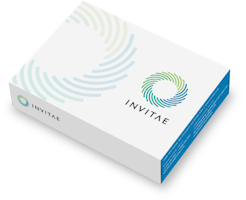
Invitae Trichorhinophalangeal Syndrome Panel
Test code: 04617 •
Test description
The Invitae Trichorhinophalangeal Syndrome Panel analyzes two genes that are associated with trichorhinophalangeal syndrome (TRPS), which is characterized by short stature, cone-shaped epiphyses, brachydactyly, sparse hair and a bulbous nasal tip, and variable exostoses and intellectual deficit. Contiguous deletions of the TRPS1 and EXT1 genes cause TRPS type 2, also known as Langer-Giedion syndrome, which is characterized by multiple osteochondromas and distinctive facial and skeletal features.
Genetic testing of these genes may confirm a diagnosis and help guide treatment and management decisions. Identification of a disease-causing variant can inform recurrence-risk assessment and genetic counseling.
Ordering information
Turnaround time:
10–21 calendar days (14 days on average)New York approved:
YesPreferred specimen:
3mL whole blood in a purple-top EDTA tube (K2EDTA or K3EDTA)Alternate specimens:
Saliva, buccal swab, and gDNA are also accepted.Learn more about specimen requirementsRequest a specimen collection kitClinical description and sensitivity
Clinical description:
TRPS is a skeletal dysplasia characterized by a distinctive facial appearance, skeletal abnormalities, and short stature. Patients have sparse, slowly growing scalp hair, laterally sparse eyebrows, a bulbous tip of the nose, protruding ears, long flat philtrum and thin upper vermillion border. The most typical radiographic findings in TRPS are cone-shaped epiphyses, predominantly at the middle phalanges, which are often not detectable before 2 years of age. Hip malformations such as coxa plana, coxa magna, or coxa vara are present in >70% of patients. Patients with the milder form of the syndrome are sometimes described as having TRPS type I, whereas patients with more severe presentation (shorter stature and very short fingers, known as brachydactyly) are sometimes described as having TRPS type III. TRPS type II, also called Langer-Giedion syndrome, can be distinguished from types I and III on the basis of intellectual deficit and the presence of exostoses.
Assay information
Invitae is a College of American Pathologists (CAP)-accredited and Clinical Laboratory Improvement Amendments (CLIA)-certified clinical diagnostic laboratory performing full-gene sequencing and deletion/duplication analysis using next-generation sequencing technology (NGS).
Our sequence analysis covers clinically important regions of each gene, including coding exons and 10 to 20 base pairs of adjacent intronic sequence on either side of the coding exons in the transcript listed below, depending on the specific gene or test. In addition, the analysis covers select non-coding variants. Any variants that fall outside these regions are not analyzed. Any limitations in the analysis of these genes will be listed on the report. Contact client services with any questions.
Based on validation study results, this assay achieves >99% analytical sensitivity and specificity for single nucleotide variants, insertions and deletions <15bp in length, and exon-level deletions and duplications. Invitae's methods also detect insertions and deletions larger than 15bp but smaller than a full exon but sensitivity for these may be marginally reduced. Invitae’s deletion/duplication analysis determines copy number at a single exon resolution at virtually all targeted exons. However, in rare situations, single-exon copy number events may not be analyzed due to inherent sequence properties or isolated reduction in data quality. Certain types of variants, such as structural rearrangements (e.g. inversions, gene conversion events, translocations, etc.) or variants embedded in sequence with complex architecture (e.g. short tandem repeats or segmental duplications), may not be detected. Additionally, it may not be possible to fully resolve certain details about variants, such as mosaicism, phasing, or mapping ambiguity. Unless explicitly guaranteed, sequence changes in the promoter, non-coding exons, and other non-coding regions are not covered by this assay. Please consult the test definition on our website for details regarding regions or types of variants that are covered or excluded for this test. This report reflects the analysis of an extracted genomic DNA sample. In very rare cases, (circulating hematolymphoid neoplasm, bone marrow transplant, recent blood transfusion) the analyzed DNA may not represent the patient's constitutional genome.
You can customize this test by clicking genes to remove them.
Primary panel
Question about billing?
Find answers